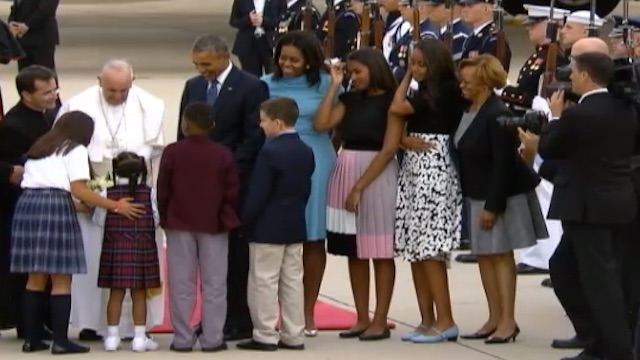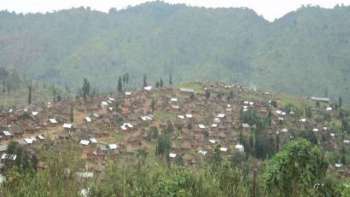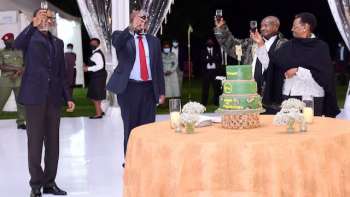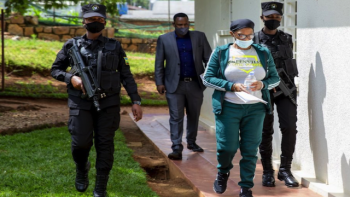Pope Francis said on March 13, 2017 that he is cancelling a long planned trip to DRC. He was due to travel to DRC and its neighbour, the Republic of Congo, in July-August 2017.
The trip cancellation complicates an already complex and deteriorating political situation in the DRC.
The political dialogue brokered by the National Episcopal Conference of the Democratic Republic of Congo (DRC), known as CENCO between President Joseph Kabila's political alliance, the presidential majority (MP) and the Rassemblement, a broad coalition of opposition groups, has hit an impasse since it started. After three months since the accord, it appears that the prospects for its survival are vanishing.
According to sources close to Joseph Kabila, the opposition, and CENCO, contacted by AfroAmerica Network, the cancellation of the trip is due to mounting conflicts between Joseph Kabila's inner circle and the Catholic Church. The sources said that the Congolese Catholic Bishops had invited the pope to travel to DRC and bless the CENCO's brokered accord. Pope Francis announced the trip cancellation in an interview with the German national newspaper Die Zeit, saying that:" It was planned that I travel to the two Congo's, but things are not well with Kabila; I believe I would not travel there."
The trip cancellation by Pope Francis has been met with mixed reactions. The DRC political opposition was elated. Some leading opposition figures told AfroAmerica Network that they were relieved that Pope Francis made the decision to cancel the trip, making the point that, if the trip had happened the pope would have honored an illegitimate President Kabila.
Joseph Kabila's government dismissed the importance of the trip and appeared to belittle Pope Francis' decision. "Who cares if the pope does not come to Kinshasa?", DRC Government representative and Communication Minister Lambert Mende told the press, after learning of the pope's decision.
The reaction by Pope Francis follows multiple international condemnations of the political impasse in the DRC (see ACP-EU reaction here.)
Despite pressure, both internal and external, on DRC President Joseph Kabila to accept the peaceful transfer of power, with major concessions from the opposition to allow a smooth transition, Joseph Kabila has so far refused to approve the execution of the provisions of the accord brokered by CENCO. Since the beginning there were signs that Joseph Kabila has long expected this outcome. He has already brought in Rwandan special forces to reinforce his Republican Guard, in preparation of the withdrawal of the Angolan troops and, according to sources in Katanga, his region of origin, he has started to prepare a referendum to change the constitution, to eliminate terms limit provisions, similar to what happened in the Republic of the Congo, Rwanda, and Uganda.
As Joseph Kabila hangs onto power, the country has been rocked by deadly clashes and massacres of young people and children, especially in the provinces of Kasai ((see background here), Central DRC and in the capital city of Kinshasa.
The situation has deteriorated so much that some opposition figures contacted by AfroAmerica Network have rejected the deal itself, even if it were implemented. They pointed to the evident inability of the signatory parties to start the implementation of the agreement, months after its signature. Accusing Joseph Kabila of intentionally blocking the accord so that he may rig elections, they questionned the legitimacy and the credibility of the planned elections at the end of the year, and expressed their intentions to publicly call on DRC President Joseph Kabila to step down without condition.
















